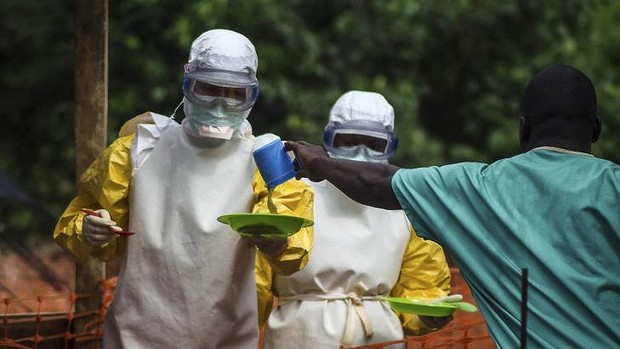
Medical staff working with Medecins sans Frontieres (MSF) prepare to bring food to patients kept in an isolation area at the MSF Ebola treatment centre in Kailahun, Sierra Leone. Photo: Reuters
The worst Ebola outbreak in history has put a number of countries in West Africa in lockdown, led to the deaths of nearly 700 people since February and brought new reports of doctors contracting the virus they are attempting to contain. The situation is undeniably scary. Here’s what you need to know.
What is Ebola?
Ebola viral disease is a highly infectious illness with fatality rates up to 90 per cent, according to the UN World Health Organization. Symptoms initially include a sudden fever as well as joint and muscle aches and then typically progress to vomiting, diarrhoea and, in some cases, internal and external bleeding.
The virus spreads through contact with bodily fluids of someone who is infected. Reports of human infections usually first emerge in remote areas that are in proximity to tropical rain forests, where humans can come into contact with animals such as chimpanzees, gorillas and forest antelope. The consumption of bush meat is often a precursor to such outbreaks. The WHO says fruit bats are probably the natural host for the virus.
